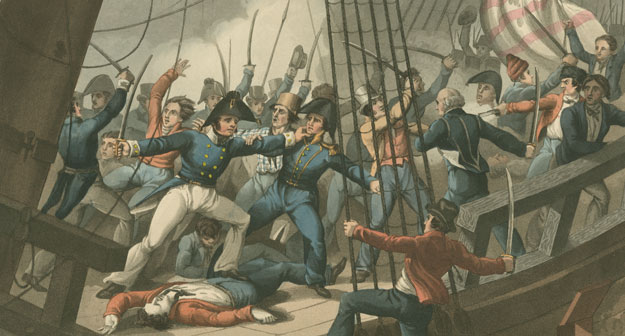The British War
In 1812, Britain sought to defend Canada without compromising its war against Napoleonic France.

Boarding and Taking the American Ship Chesapeake, by the Officers & Crew of H.M. Ship Shannon, Commanded by Capt. Broke, June 1813
When the British look back at the early nineteenth century, they remember the Napoleonic Wars, not the War of 1812. To support the war with France, the British forced sailors from American ships to join the Royal Navy and attempted to control American trade with French-occupied Europe. When the United States responded by declaring war, Britain defended Canada and blockaded American ports, but never lost sight of its primary goal: defeating Napoleon.
“The King’s government … [has] most unequivocally expressed to me their desire to preserve peace with the United States, that they might, uninterrupted, pursue with the whole disposable force of the country, the great[er] interest in Europe.”— George Prevost, British, Governor General of Canada, 1812
“On our way down here, Senator Frist was kind enough to show me the fireplace where, in 1814, the British had burnt the Congress Library. I know this is, kind of, late, but sorry.”— British Prime Minister Tony Blair, addressing a joint session of the United States Congress, 17 July 2003
"...your first object will be to preserve Quebec, to which all other considerations must be subordinate.”— Robert Stewart, Viscount Castlereagh, British Foreign Secretary, to Sir James Craig, Governor General of the Canadas, 1 September 1807